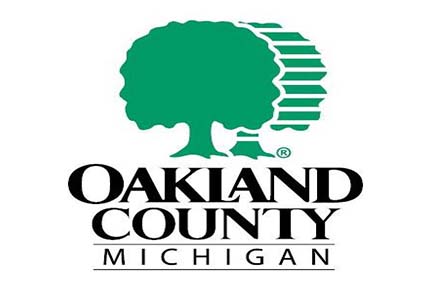Governor Whitmer Makes Appointments to the Task Force on Juvenile Justice Reform
LANSING, Mich. — Today, Governor Gretchen Whitmer announced appointments to the Task Force on Juvenile Justice Reform.
In June 2021, Governor Whitmer signed Executive Order No. 2021-6 creating the Task Force on Juvenile Justice which will be chaired by Lieutenant Governor Garlin Gilchrist and will focus on analyzing our juvenile justice system, while recommending proven practices and strategies for reform grounded in data, research, and fundamental constitutional principles.
“To fully change our criminal justice system into a system that will position young Michiganders for success, we need the best minds from a wide variety of backgrounds to lead the Task Force on Juvenile Justice Reform,” said Lt. Governor Garlin Gilchrist. “I am very confident that these appointees are going to do everything in their power to ensure that we focus on building and delivering reforms that will make our communities safer while improving outcomes for individuals who come into contact with our criminal justice system. When we allow everyone to have a seat at the table, we make sure that these policies will be inclusive and equitable for all.”
“Reimagining Michigan’s juvenile justice system will take collaboration, innovation, and information,” said Michigan Supreme Court Justice Elizabeth T. Clement. “This task force will be successful because we are laser-focused on building partnerships, being creative, and analyzing the data to make sure that every Michigan child has the chance to achieve their full potential. We will make Michigan a national leader in providing the support children need to stay out of the criminal justice system and on a path to success.”
The Task Force will include members of the executive branch, legislature, judiciary, and juvenile justice community. In addition to Lt. Governor Gilchrist, executive branch participants include Asst. Attorney General Stine Grand representing the Attorney General, State Superintendent Dr. Michael Rice representing the Michigan Department of Education, Derrick McCree, Director of Juvenile Justice Programs, representing the Michigan Department of Health and Human Services, and Jason Smith, executive director of the Michigan Center for Youth Justice, representing the Michigan Commission on Juvenile Justice.
Judicial branch participants include the following individuals designated by Chief Justice Bridget Mary McCormack: Supreme Court Justice Elizabeth Clement, Judge Doreen Allen of the Midland County Probate Court, Judge Karen Braxton of the 3rd Circuit Court, and Juvenile Court Director Thom Lattig of the 20th Circuit Court.
Legislative branch participants include Sen. Kim LaSata designated by the Senate Majority Leader, Sen. Sylvia Santana designated by the Senate Minority Leader, Rep. Sarah Lightner designated by the Speaker of the House, and Rep. Brenda Carter designated by the House Minority Leader.
The Governor has appointed the following members of the juvenile justice community to serve on the Task Force:
Alisha R. Bell, of Detroit, is a commissioner and chair of the Wayne County Commission. She holds a Bachelor of Science in Business Administration from Florida A&M University and a Master of Education from the University of Nevada, Las Vegas. Commissioner Bell is appointed to represent a member nominated by the Michigan Association of Counties to represent a board of county commissioners from a county with a population of 100,000 or more according to the most recent decennial census appointed from a list of three or more nominees submitted.
John J. Casteel, of Ann Arbor, is a founding member of the Western Wayne County Care Management Organization Juvenile Advisory Council. He currently works as a line worker with Webasto Roofing. Mr. Casteel is appointed to represent an individual who has lived experience as a justice-involved youth in Michigan.
Cameron A. Fraser, of Traverse City, is the executive director and defense attorney for the Michigan Indian Legal Services. Ms. Fraser is also a Judge Pro Tem for the Little Traverse Bay Bands of Odawa Indians. She holds a Bachelor of Science in Political Science from the University of Iowa and she earned her Juris Doctor degree from the University of Michigan Law School. Ms. Fraser is appointed to represent a juvenile defense attorney.
Jeannine P. Gant, of Detroit, is the CEO of Big Brothers Big Sisters of Metropolitan Detroit. She holds a Bachelor of Arts in Professional Speech and Theatre from North Caroline A&T State University and a Master of Arts in Public Relations and Organizational Communication from Wayne State University. Ms. Gant is appointed to represent the juvenile service provision community, which may include juvenile detention, residential treatment, and/or community-based services.
Steven. L. Hinkley, Sr., of Homer, is the sheriff for Calhoun County. He is also an adjunct instructor of criminal justice at Kellogg Community College, and he studied at the Criminal Justice Police Academy at Lansing Community College. Sheriff Hinkley is appointed to represent a county sheriff nominated by the Michigan Sheriff’s Association.
Karen McDonald, of Birmingham, is the prosecutor for Oakland County. She holds a Bachelor of Arts in English and Political Science from Alma College and a Juris Doctor degree from the Wayne State University Law School. Ms. McDonald is appointed to represent a prosecuting attorney nominated by the Prosecuting Attorneys Association of Michigan.
Everette L. Robbins, II, of New Boston, is the chief of police and director of public safety for Huron Township. He holds a Bachelor of Applied Sciences in Public Safety Studies from Siena Heights University and earned his MCOLES certification from Washtenaw County Community College. Chief Robbins is appointed to represent a police chief nominated by the Michigan Association of Chiefs of Police.
Kimberly A. Thomas, of Ann Arbor, is a clinical professor of law and the director of the Juvenile Justice Clinic at the University of Michigan Law School. She holds a Bachelor of Science in Journalism and Economics from the University of Maryland and a Juris Doctor degree from Harvard Law School. Professor Thomas is appointed to represent a youth-justice advocate.
Marlene J. Webster, of Owosso, is a commissioner with the Shiawassee County Commission and the pastor for the Owosso City Church. She holds a Bachelor of Science from Lake Superior State University and a Master of Arts in Religion in Spiritual Formation from Northwest Nazarene University. Reverend Webster is appointed to represent a member nominated by the Michigan Association of Counties who is a member of a board of county commissioners from a county with a population of less than 100,000 according to the most recent decennial census.
Colbert Williams, of Grand Rapids, is a parenting consultant for the Kent County Family Court and the founder of The Delta Project. He holds a Bachelor of Social Work from Ferris State University. Mr. Williams is appointed to represent an individual who has lived experience as a parent or guardian of a justice-involved youth in Michigan.
Appointees will serve for two-year terms expiring July 22, 2023. Appointments are not subject to the advice and consent of the Senate.








 Supported by Michigan’s Invasive Species Program, the regular, hourlong webinars are designed to keep participants informed of available programs, current research and emerging issues in the state and the Great Lakes region. Question and answer sessions and links to resources help attendees get the most out of each presentation.
Supported by Michigan’s Invasive Species Program, the regular, hourlong webinars are designed to keep participants informed of available programs, current research and emerging issues in the state and the Great Lakes region. Question and answer sessions and links to resources help attendees get the most out of each presentation.






